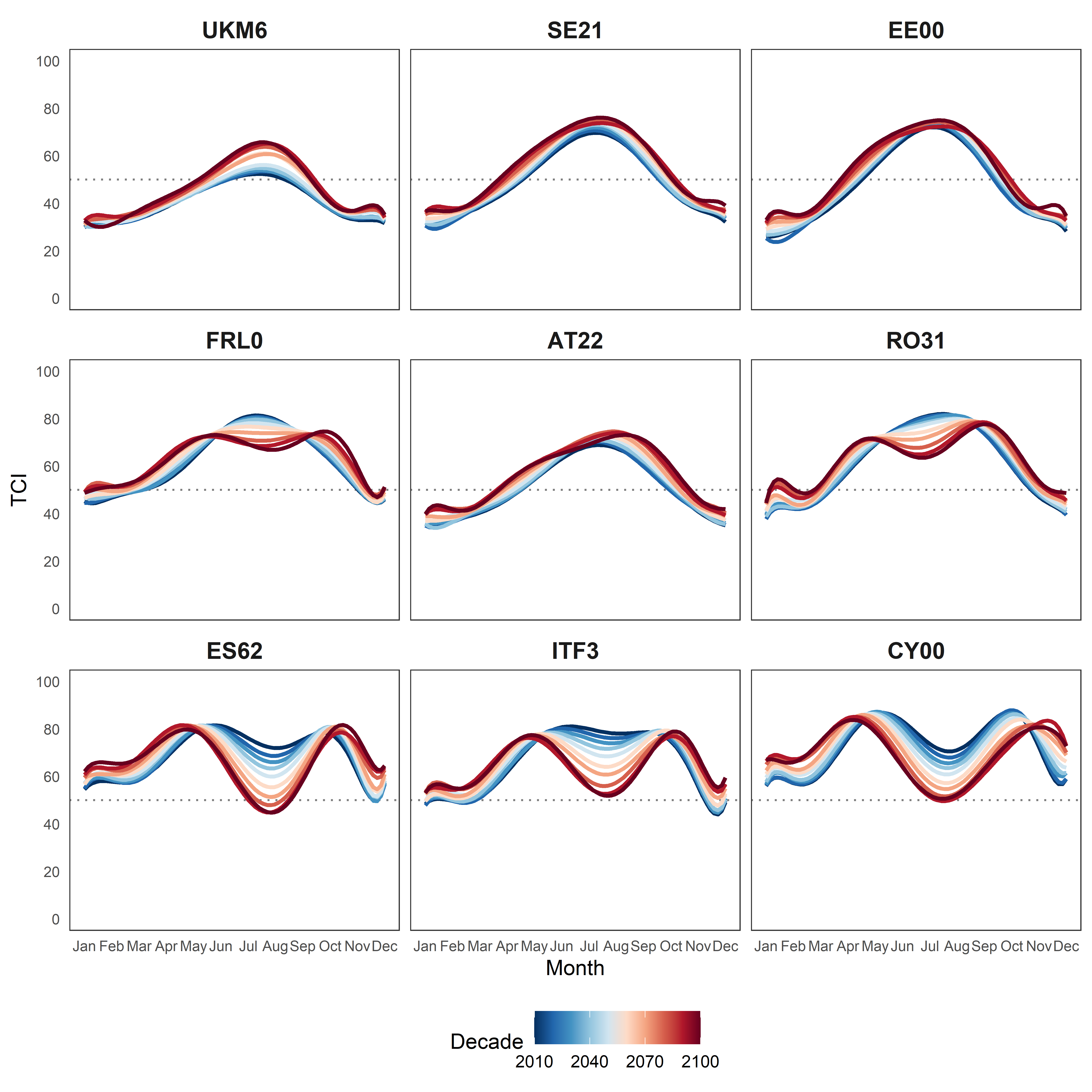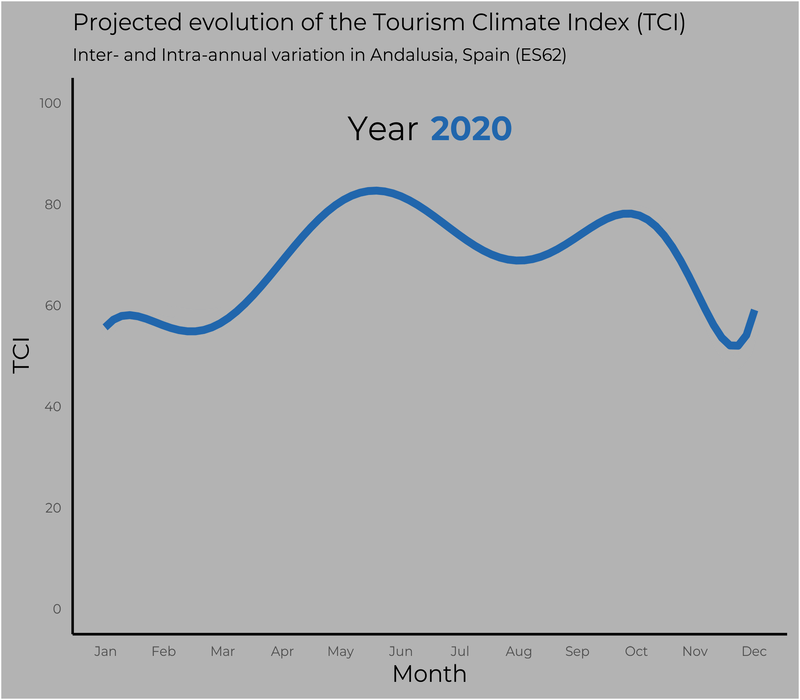Regional impact of climate change on European tourism demand
with Anca Matei, Alessandro Dosio, Filipe Batista e Silva, Ricardo Barranco and Juan Carlos Císcar. JRC Technical Report, 131508.
The tourism industry, a significant contributor to European GDP, may face considerable stress due to climate change.
This study examines the potential impact of climate change on tourism demand in European regions in the 2100 time horizon. Using data from 269 European regions over a 20-year monthly timespan, we estimate the effect of current climatic conditions (rated with a Tourism Climatic Index, TCI), on tourism demand, considering various regional typologies.
Our findings reveal that climate conditions significantly affect tourism demand, with coastal regions being the most impacted areas. Next, we simulate the impacts of future climate change on tourism demand for four warming levels (1.5°C, 2°C, 3°C, and 4°C) under two emissions pathways (RCP4.5 and RCP8.5). We find a clear north-south pattern in tourism demand changes, with northern regions benefitting from climate change and southern regions facing significant reductions in tourism demand; that pattern becomes more pronounced for higher warming scenarios. The seasonal distribution of tourism demand would also change, with relative reductions in summer and increases in the shoulder and winter seasons.
All else being equal, a clear north-south pattern is projected for tourism demand change in Europe as a result of climate change, with northern regions benefiting and southern regions experiencing reductions due to generalised harsher climate conditions.

The seasonal distribution of tourism demand would change, with decreased summer demand and increased demand during the shoulder and winter seasons.


